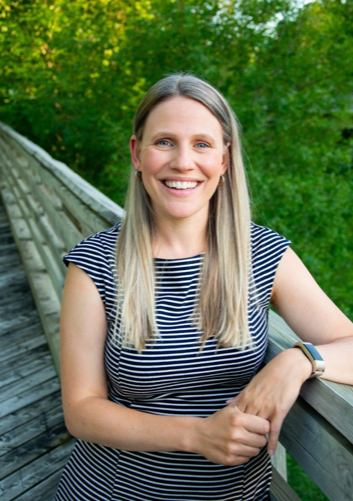Georgian receives $360,000 in NSERC funding to develop future changemakers
June 30, 2021
Georgian College in partnership with the Simcoe County District School Board (SCDSB) and Ashoka Canada is poised to help create a generation of young changemakers thanks to a $360,000 grant from the Natural Sciences and Engineering Research Council of Canada (NSERC).
Georgian’s research project, along with 53 other funded projects across Canada, will share over $38 million through the College and Community Social Innovation Fund (CCSIF) and College and Community Innovation (CCI). The objective of the grant is to equip educators with a tool to help measure and validate key skills and mindsets associated with successful social innovation in the 21st century and ultimately focus their efforts on where future growth can happen.
“Georgian is committed to advancing all types of research, and this NSERC grant illustrates that we also focus on impactful and meaningful research outcomes,” says Dr. MaryLynn West-Moynes, President and CEO, Georgian College.
Georgian’s lead investigator Dr. Sarah Hunter looks forward to amplifying what educators are already doing in the classroom around equipping students with the necessary skills to help change the world through social innovation.
“These changes can be really tiny from awakening empathy and showing more compassion to big ones like questioning their own privilege, dismantling systems of power, or creating a non-profit to effect change in their own community,” says Dr. Hunter. “Everyone can change the world – it’s determining what kind of change you want to make.”
In collaboration with employers, educators and students, a Research Advisory Council will develop evaluation tools that measure growth in the four Ashoka changemaker competencies: empathy, shared leadership, teamwork, and changemaking. These are the main competencies Ashoka has defined as the ones that will help with social transformation world-wide.

“We want to develop a tool where we can see whether students have evolved their skills in these four areas,” explains Dr. Hunter. “For example, has a student increased their empathy? We know intuitively they’re moving the needle but a shared evaluation tool would allow us to hone in on where growth is actually happening.”
The council will be created during the first phase of the three-year research project and will provide advice throughout the length of it.
The second year will be focused on piloting the tools with students to test, validate and refine them to determine the best ones that truly measure the competencies in a cohort of students.
Finally, the last year of the project will be spent helping educators from kindergarten through to postsecondary build their capacity to incorporate these tools into their classrooms. Dr. Hunter thinks this idea is very cool.
“It would be great to see that the same tools used in kindergarten can also be used in Grade 8 and onto postsecondary,” she says.
In addition to Dr. Hunter the project will include Tracy Mitchell-Ashley, Georgian faculty and project co-investigator and six student researchers. Suzie Addison-Toor, Director, Social Innovation and Student Success at Georgian will also be collaborating on the project.
“As Canada’s first – and only – Ashoka U designated changemaker college, we believe ideas can spark innovation and small acts can lead to big change,” says Suzie. “Georgian, Ashoka Canada and the Simcoe County District School Board share a commitment to creating changemakers and active citizens to build stronger, safer, healthier and more inclusive communities.”
Interested in learning more about the Research Advisory Council and how you can participate?
Thanks for our funders
This funding program is supported by Social Sciences and Humanities Research Council (SSHRC) through the College and Community Innovation (CCI) program, which is administered by Natural Sciences and Engineering Research Council of Canada (NSERC), on behalf of the three federal granting agencies.